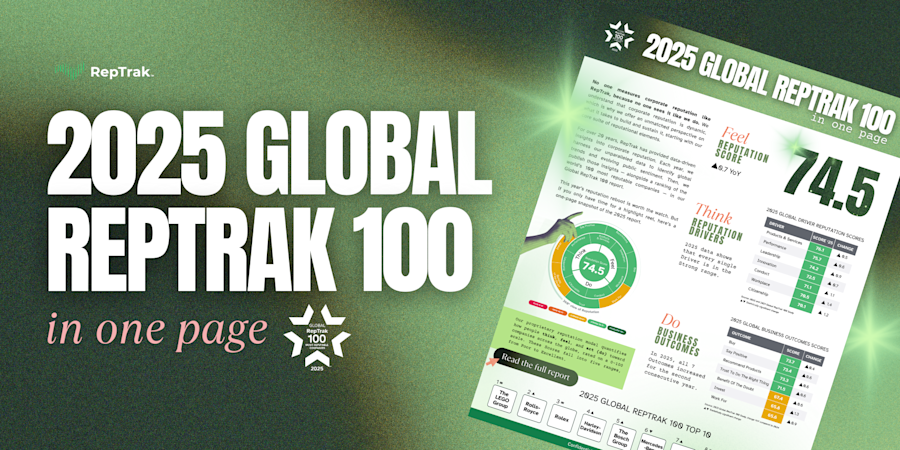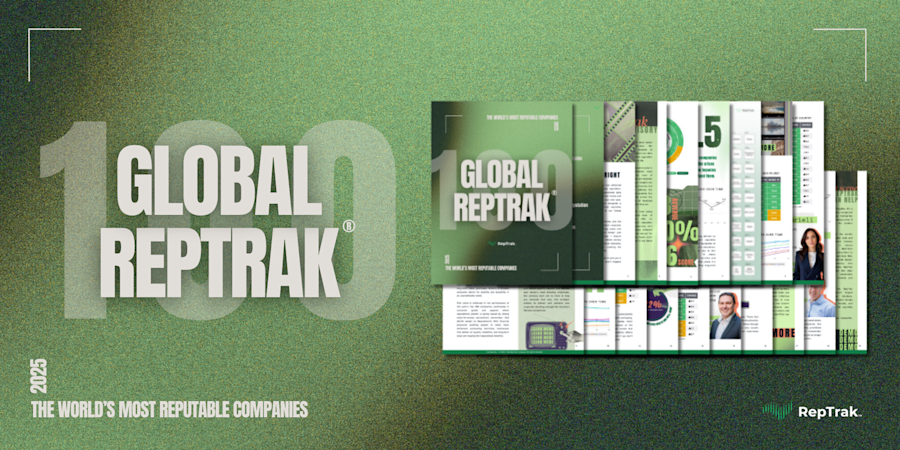How Has the COVID-19 Crisis Affected the Reputations of Companies in Mexico?
Blog Post03 Jun, 2020
The COVID-19 pandemic has had a devastating impact on the world economy. Constraints placed on many families and companies over the past months have hindered economic growth, and a debate has arisen about next steps: Should society focus on preserving public health or salvaging the drowning economy? Amid this uncertainty, questions have emerged regarding the role to be played by companies in safeguarding their reputation.
The RepTrak Company and Zimat Consultores conducted a study in Mexico to better understand the situation and assess the effects of the crisis on the reputation of companies and institutions. This was part of a series of studies undertaken by The RepTrak Company across several countries—starting with Italy, the United States, and Spain, but now extended to other regions.
The study, which was the result of a partnership to promote corporate reputation management in Mexico, was implemented during the second half of April. A sample of 1,000 interviewees from the Mexican general public answered questions about their reactions to the pandemic and their opinions concerning the responses of a range of public and private organizations.
The prevailing instability, accompanied by a negative perception of the impact of the crisis, has led the Mexican population to adopt a growing pessimism—which is similar to the reaction in other surveyed countries. Globally, a spotlight has been put on government responses and, likewise, on the responses of companies.
Many businesses have started implementing programs to counteract the negative consequences of the crisis. One of the goals of this study was to analyze whether these actions are viewed positively by the general public, and as such, if they contribute to improving the reputation of the companies that carried them out. Evidence has allowed us to confirm that this course of action has, indeed, been received positively.
Five key findings
1) Uncertainty, pessimism, and changes in working conditions and household income have led the general public to feel seriously concerned about the impending economic crisis. This mood has permeated the domestic economy, affecting future spending forecasts, especially in terms of travel and tourism, real estate, and financial products. There is also an expected reduction in household savings.
2) Healthcare professionals are the heroes of this crisis, and accordingly, people’s opinion of them has increased markedly. Other leaders whose reputations have improved during this crisis are the Deputy Minister for Health, Hugo López Gatell, the army, key service providers, and the National Guard. On the other hand, political parties, President López Obrador, the Federal Government, and companies in general (both small and large) are among those with declining reputations during the pandemic.
3) Our Reputation Model, the international standard for measuring corporate reputation, encompasses seven rational drivers that explain people’s admiration, respect, and trust for companies, i.e., their reputation: the Products & Services they offer, Innovation, Workplace, Governance (ethics and transparency), Citizenship (social investment and environmental care), Leadership (quality of management) and Financial Performance.
Prior to the health emergency, the most important driver of a company’s reputation in Mexico was Products & Services. In our new COVID-19 study, this area has become less important, while the importance of Workplace has increased—in other words, it is more important how a company’s demonstrates concern for and treats its own employees. Employees have become a key stakeholder during this pandemic.
The efforts being made by companies to safeguard the health of their employees during the pandemic, by offering home office options or providing medical equipment, as well as protecting their jobs despite shutdowns, are the most highly valued actions. This reinforces the idea that workers, in addition to their health and financial situations, are a priority for people during this crisis.
4) The activities that companies are implementing to fight the pandemic have an enormous impact on their reputation. We have measured the reputation of a group of major companies that operate in Mexico and which have implemented relevant actions to fight this crisis. When comparing those interviewees who were aware of the activities implemented by these companies and those who were not, the difference in their RepTrak Reputation Score (the indicator that measures the level of admiration, trust, and respect) is 17 points, on average—representing a major reputational gap between those who did not know about the activities being implemented (a weak score) and those who did (a strong score).
No less important is the difference in other variables, such as I would recommend the company to family and friends, in which the number of Promoters (i.e., those who would definitely recommend the company) increases from approximately 35% among those interviewed who did not know about the activities being implemented to 60% among those who did. From our experience, we can confirm that these differences are not commonplace.
5) A final area that is important to highlight is the increased use of social networks as a source of information for the Mexican public during the crisis, even though their credibility is somewhat limited relative to the information from healthcare professionals. Specialized publications and reports published by the government are the sources that are considered to be most trustworthy. Interviewees rated social media networks as being less credible due to hyper-information, biased news stories, and fake news.
Three Recommendations for Corporate Reputation Management
Above all else, focus on your employees. In the current crisis, as noted above, employees have become a key stakeholder group. We recommend implementing an internal analysis of their needs and concerns. The measures being taken to avoid infections (home office, social distancing, and hygiene) are of the utmost importance—not to mention ensuring job stability and reducing levels of uncertainty. Employees are brand ambassadors, and in the current situation they need to be carefully looked after. The companies that are most concerned about their employees will be among those most respected by society.
Promote corporate responsibility in your practices. Never has corporate responsibility been as necessary as it is now. Society’s expectations for companies are increasing, but so is the recognition for companies that have a positive impact in their communities and make the effort to find solutions to the crisis.
At the beginning of the year, we published the leading social trends that are influencing corporate reputation. In first place stood the need to define a corporate purpose beyond economic profit. This crisis is a true litmus test for company objectives: Are you currently able to fulfil your promises (walk the talk)?
Communicate what you are doing. What people don’t know cannot help build your reputation, nor will it have any influence on supportive behaviors. It is important for companies to show their solidarity during this crisis through their programs, but it is equally important for them to be able to ensure that their stakeholders are aware of what they are doing.
The enormous difference between the reputation indicator and the supportive behavior attitudes among the people who know what activities the companies are implementing compared to those who do not clearly shows that communicating what a company is doing is of the utmost importance. However, in the current situation, it is important to avoid being perceived as opportunistic and business-oriented. Our messages should be as sincere as our commitment to social responsibility.
For a Spanish-language translation of this article, please visit Forbes México.
Fernando Prado Senior Vice President The RepTrak Company @FPradoRepTrak
Andrea Castro Partner Zimat Consultores





